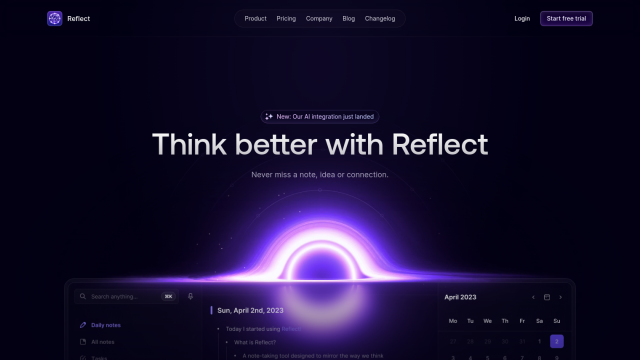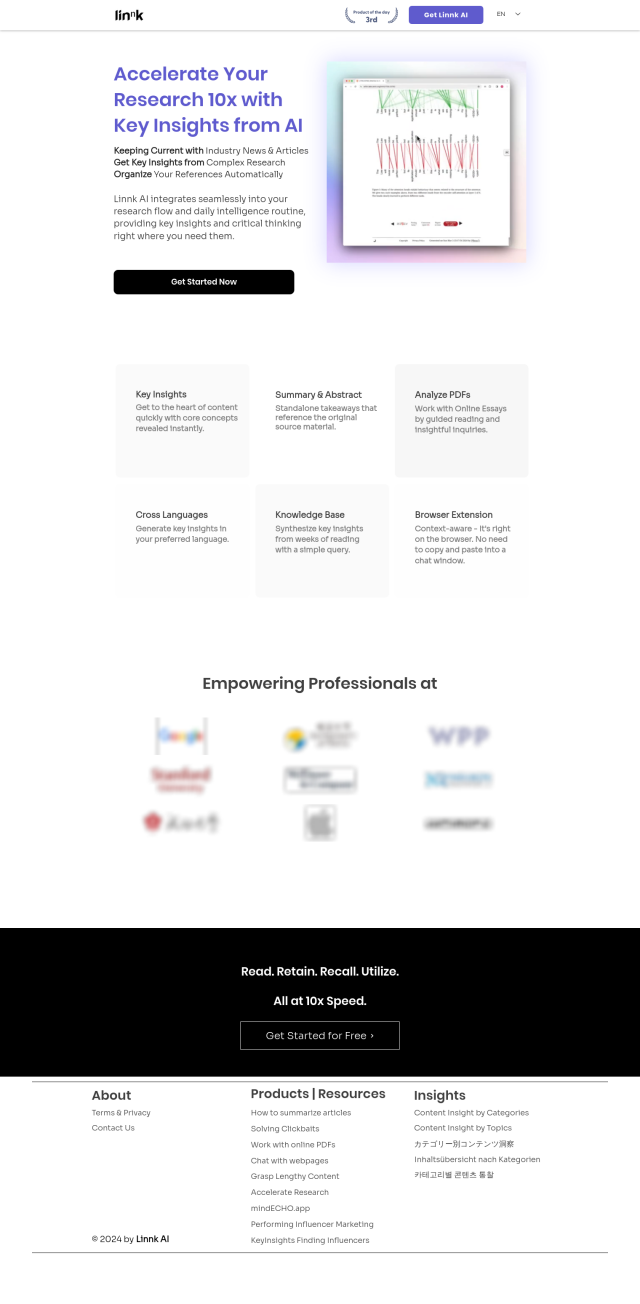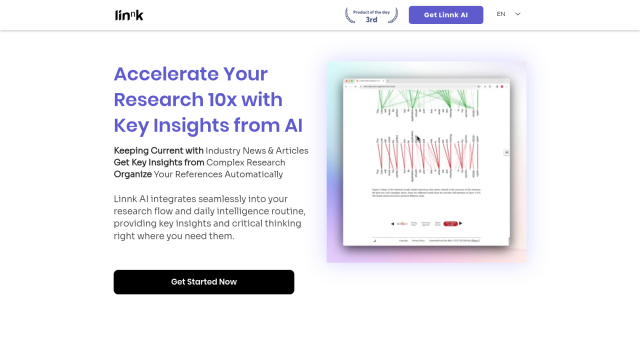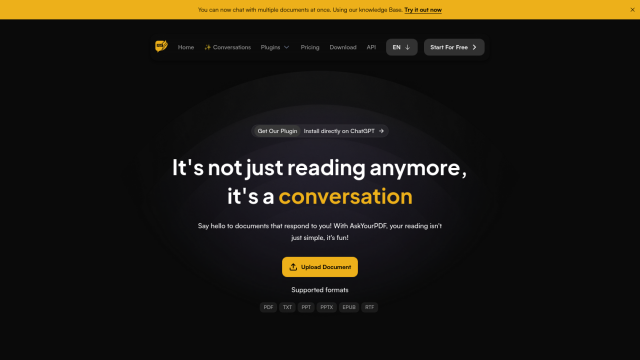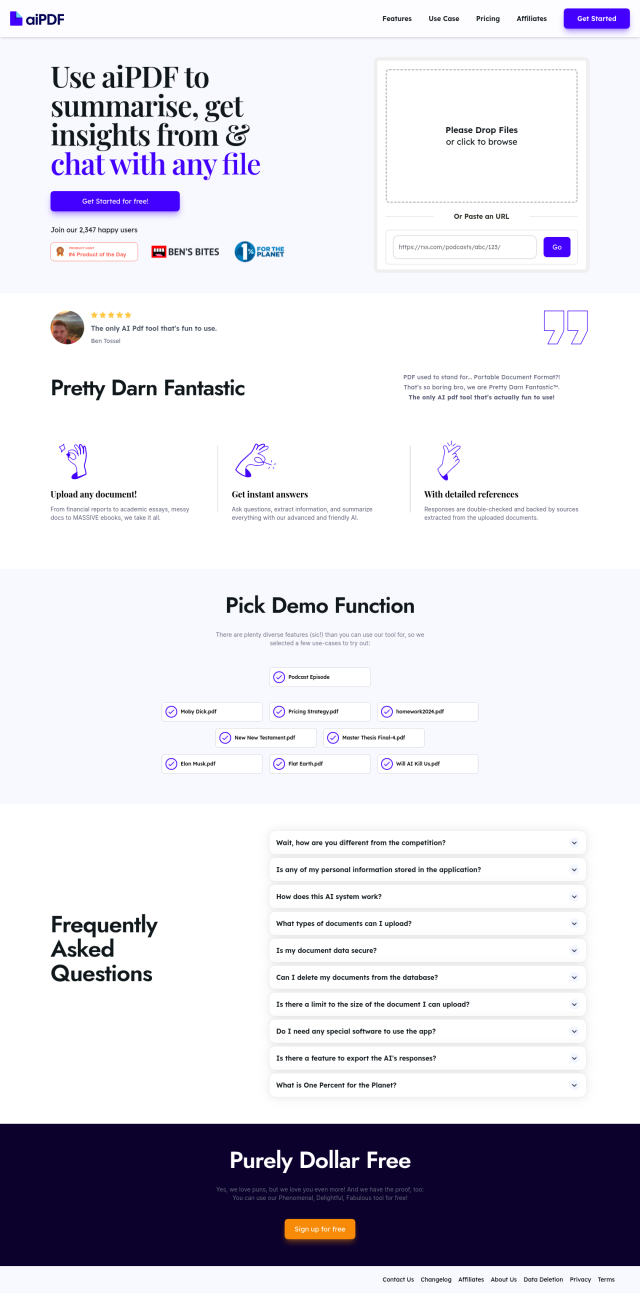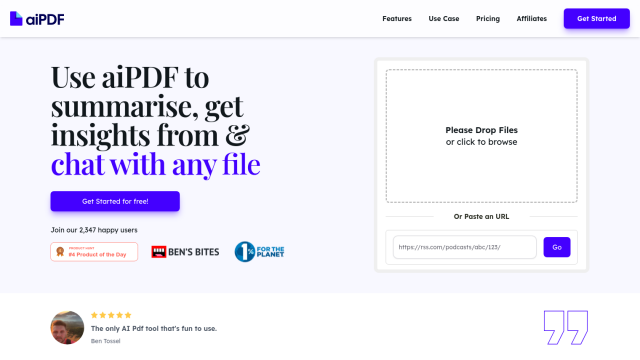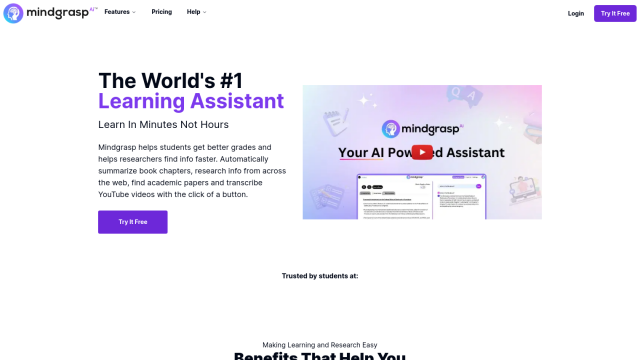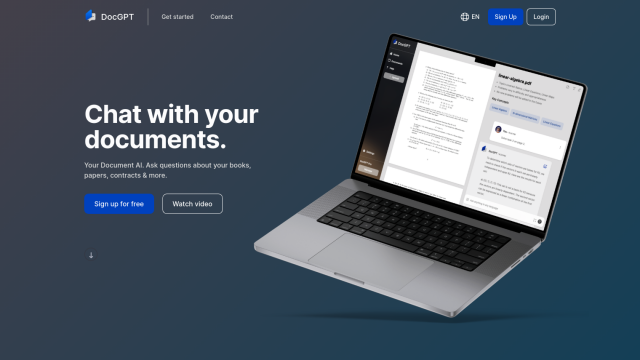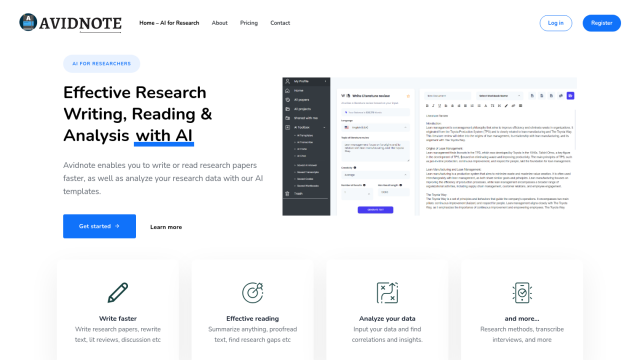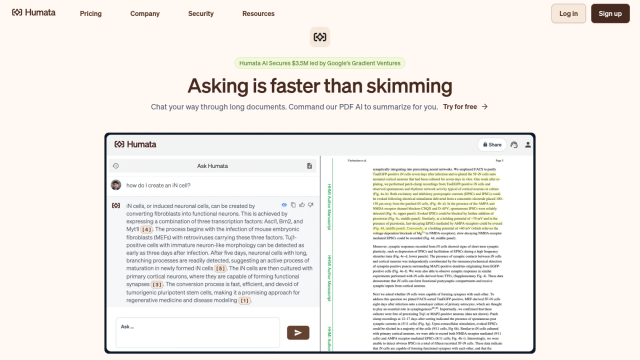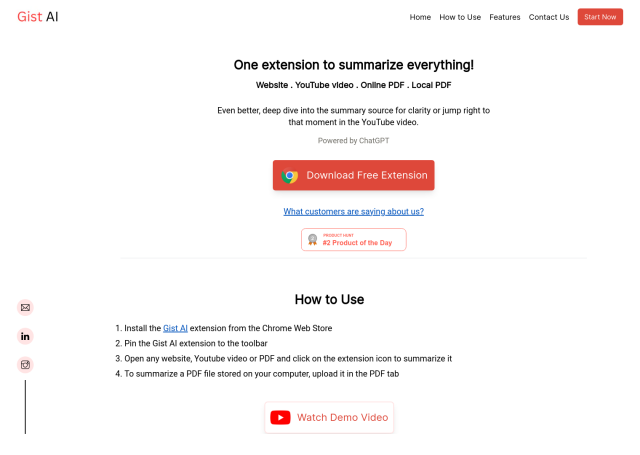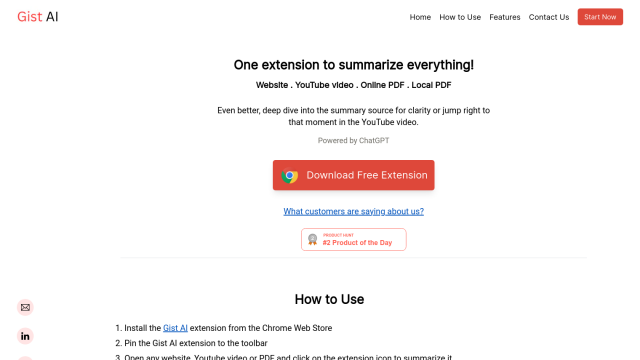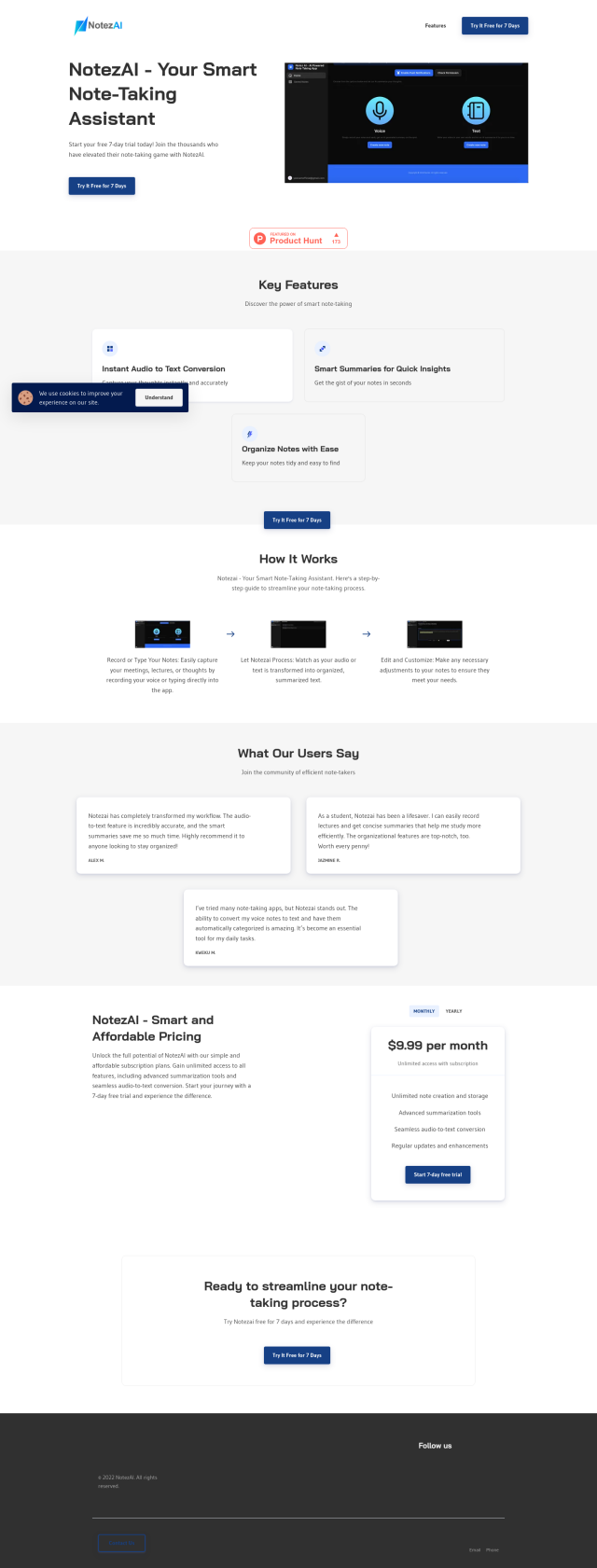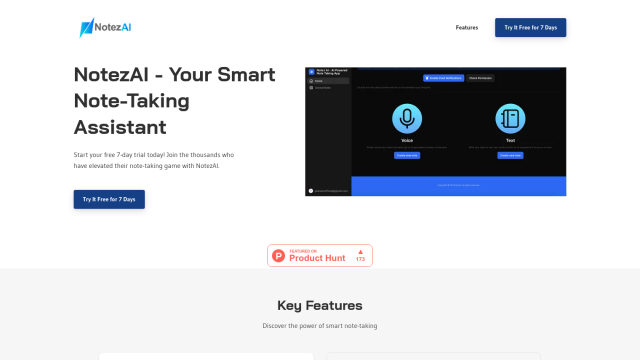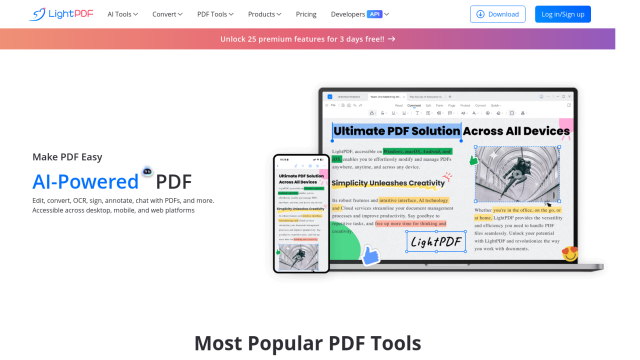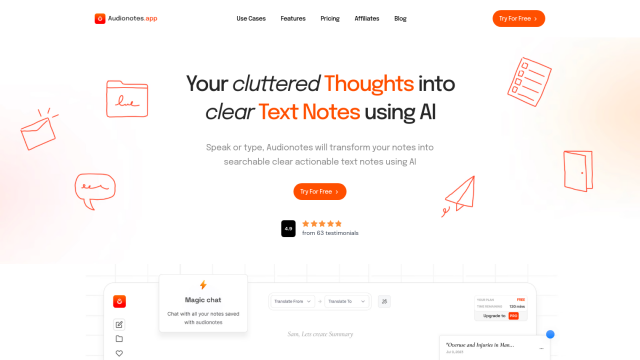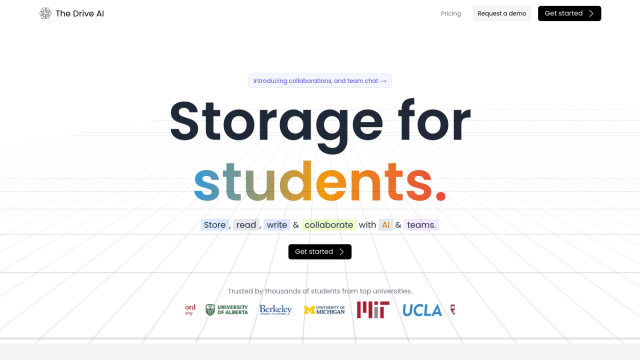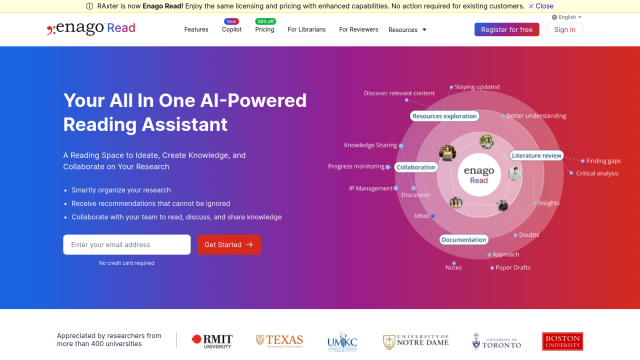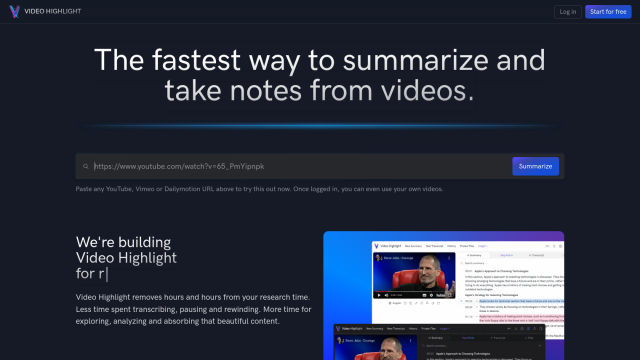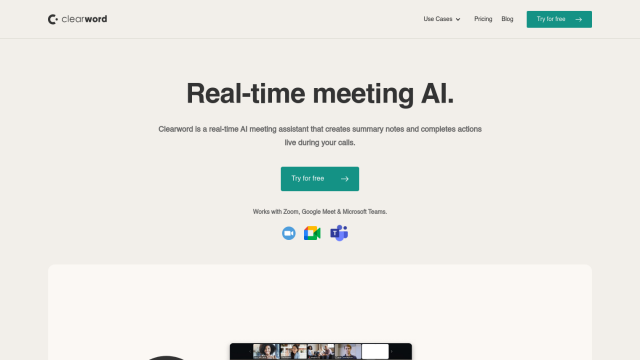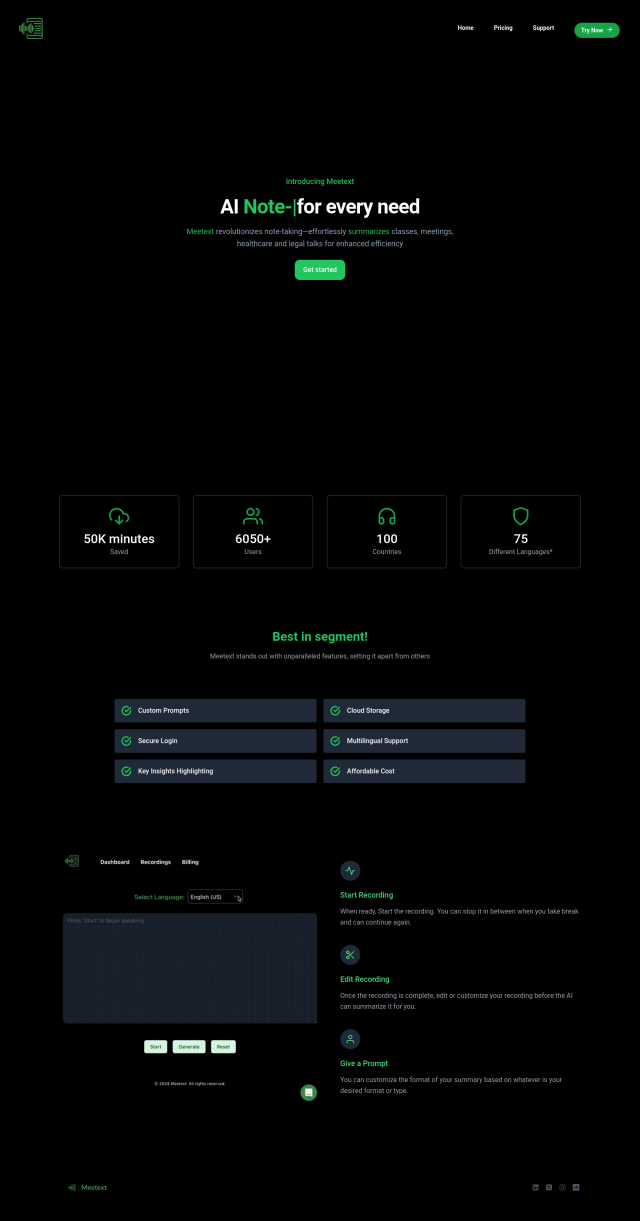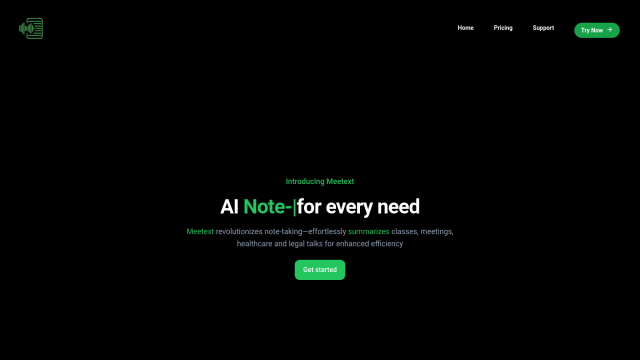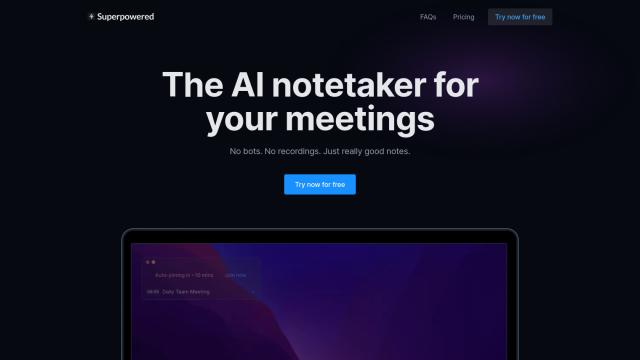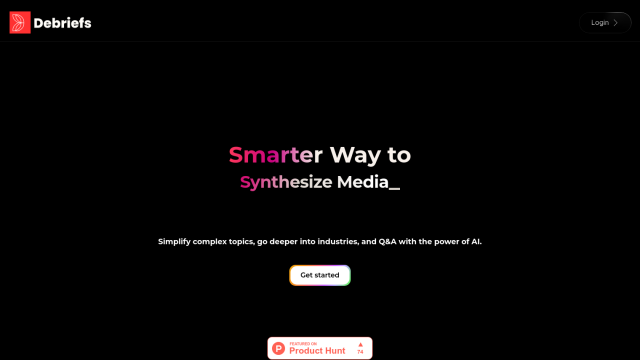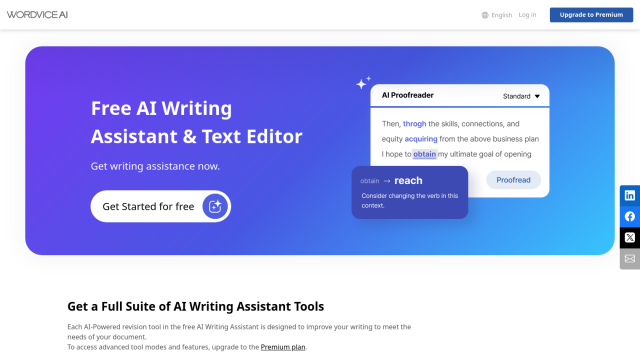Question: I'm looking for a productivity tool that can help me organize and highlight important information from various sources.

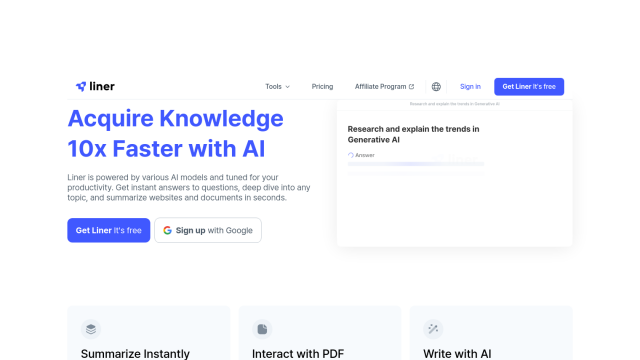
Liner
If you need a tool to help you be more productive by organizing and spotlighting information you gather from different sources, Liner is worth a look. This AI copilot can summarize documents, write code, draft emails and more. It can create one-click summaries of articles, PDFs and YouTube videos, and has features like interactive PDF collaboration and AI-based writing suggestions. Liner also has a personal workspace where you can house the content you've spotlighted, which makes it good for researchers and pros who want to work more efficiently.

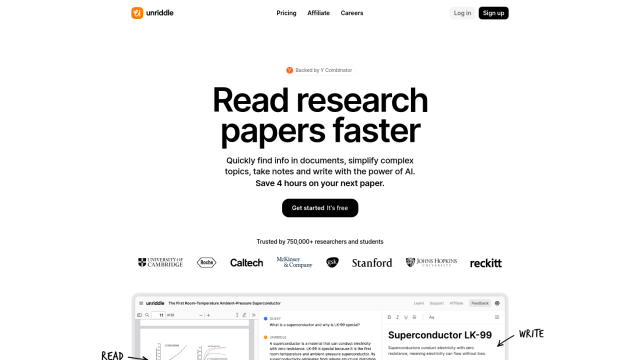
Unriddle
Another good option is Unriddle, an artificial intelligence-powered information extraction system. It generates an AI assistant on top of any document, providing quick answers to your questions and helping you understand the material faster. Unriddle can summarize complex subjects, take notes and even create interactive graphs to show relationships that aren't immediately apparent. It works in more than 90 languages and can be integrated through a Chrome extension, so it's a good option for researchers like PhD students and R&D scientists.

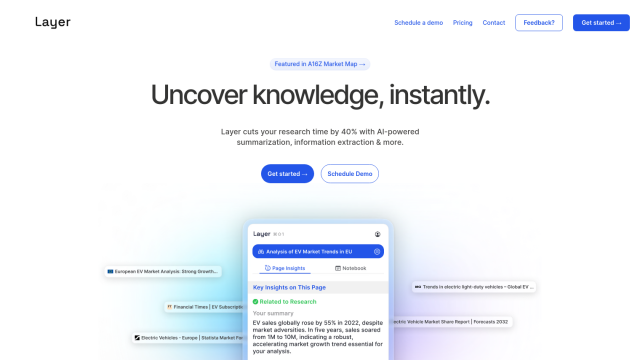
Layer
If you need a tool to help you cut down on research, Layer is worth a look. It automates research with features like Instant Extraction, Precise Answers, PDF Insights and a Notebook where you can store relevant information. The idea is to get you to higher-level work faster. It offers a free trial plan and a $30 per month Pro plan, so it's good for light and heavy use.
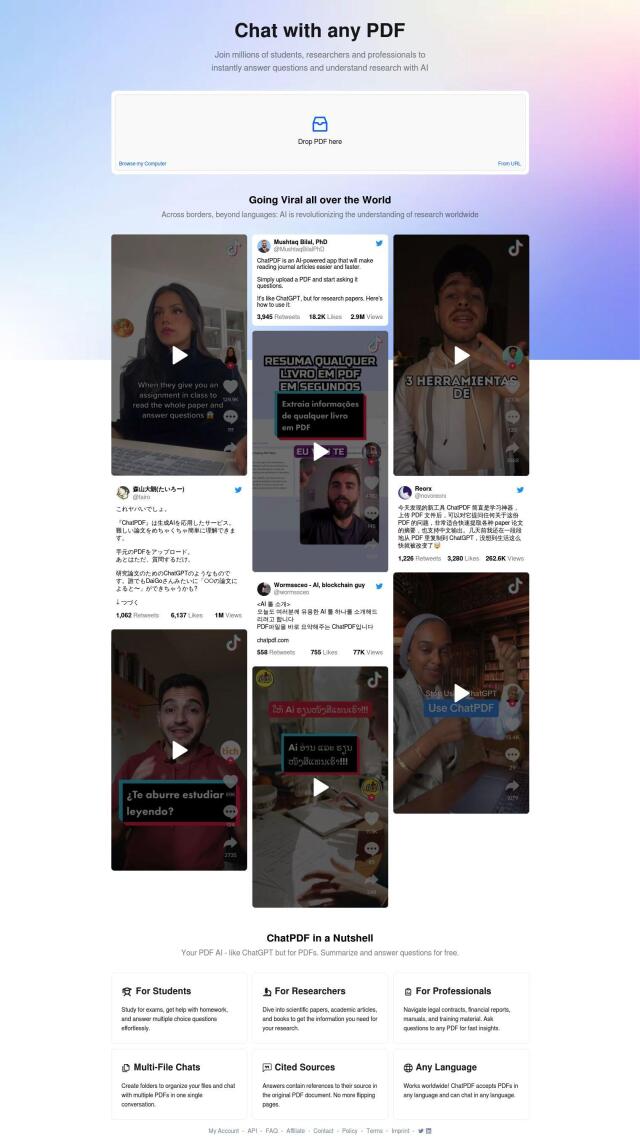
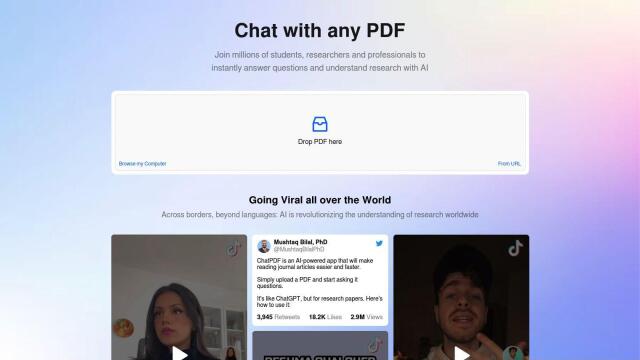
ChatPDF
Last, if you want to better understand and extract information from PDFs, check out ChatPDF. This AI-powered system lets you upload PDFs and ask questions, and it'll provide answers and summaries. It can handle multi-file chats, cite sources and handle PDFs in any language. That makes it good for students, researchers and professionals who need to quickly get answers from complex documents.

